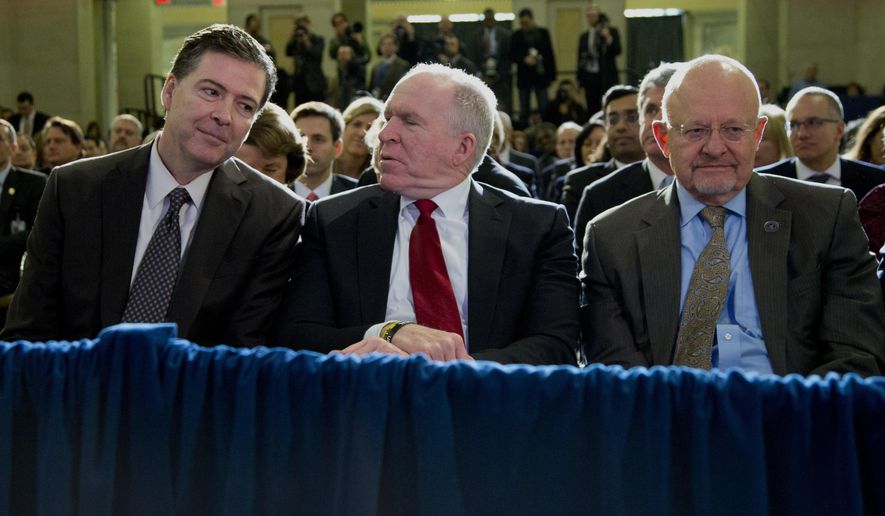Andrew McCarthy: If the FBI spied on a mosque for the same reasons they spied on Trump campaign...STORY TOPICS
By Larry O'Connor - The Washington Times - Friday, June 1, 2018
ANALYSIS/OPINION:
Former Assistant U.S. Attorney for the Southern District of New York, Andrew C. McCarthy has been one of the most important voices analyzing the Spygate story from the very beginning. His byline at National Review has been essential reading and his arguments regarding how the FBI and DOJ have operated in this escapade versus what the law, the Constitution and Justice Department protocols dictate have been factual and unassailable.
He appeared on my radio program on WMAL in Washington DC Thursday to refute Trey Gowdy and James Clapper’s argument that the Trump campaign was not actually investigated and there was nothing improper about the use of surveillance against President Obama’s political opponent during the 2016 campaign.
He was able to lay out an important and compelling argument as to why, despite all of the backtracking and excuses, the Spygate scandal is a very serious constitutional issue.
McCarthy: The use of an informant to the extent that they said there’s a tight protocol and all that stuff … I must tell you I was a prosecutor for 20 years, and I had national security cases and pretty high level organized crime cases, there’s a lot about using informants that’s the wild west, it’s really not all that regulated and a lot of it has to do with common sense. So if there’s certain situations where it’s perfectly appropriate and it’s the best thing to do to use an informant and there there are other situations where it is really inappropriate to use an informant even though it’s not illegal. And just to be more concrete about it, if you remember the big arguments that we had over the Patriot Act for all these years…O’Connor: SureMcCarthy: There were many provisions in the Patriot Act that said, this or that government tactic can’t be used if the reason for using it is First Amendment protected activity.What that means is, for example, let’s say I, as a national security counter-terrorism prosecutor, I’m concerned about a mosque. And I don’t really have any reason to think that there are jihadist activity going on in there or there is incitement, but there is a bunch of Muslims in a room that they are calling a mosque. So I get an informant and I say, ‘I want you to go in there and listen and report back to me about what’s going on’.Now, there’s nothing illegal about me using an informant, there’s no privacy interest that somebody has in being protected from speaking with somebody who can report what they said back to the government, but I imagine that people would be pretty angry if they knew the only reason I put an informant in a mosque was because there were Muslims in there. You know, they would say, ‘You need more’.And if I came back and said, ‘But look, I complied with all of the very important protocols we have in dealing with informants’, they’d look at me like I had three heads and they’d say, ‘This was not an appropriate circumstance to use a government spy to inquire about what was going on in a location because you’re infringing on people’s First Amendment right’.Now we have an important protocol in this country that you do not, as the incumbent administration, use the awesome powers that you were given under counterintelligence law and even the criminal law to investigate and harass your political opposition. The fact that using an informant doesn’t infringe on anybody’s rights to privacy, under those circumstances, is kind of beside the point.The reason that we have that standard, or the reason we have that norm, is because we don’t want our law enforcement and intelligence enmeshed in our politics unnecessarily and we want our politics to proceed without the heavy hand of the incumbent administration being able to use that to political advantage. I mean that’s common sense.
Listen to the entire interview here:
Copyright © 2018 The Washington Times, LLC. Click here for reprint permission.

No comments:
Post a Comment
Thanks for commenting. Your comments are needed for helping to improve the discussion.